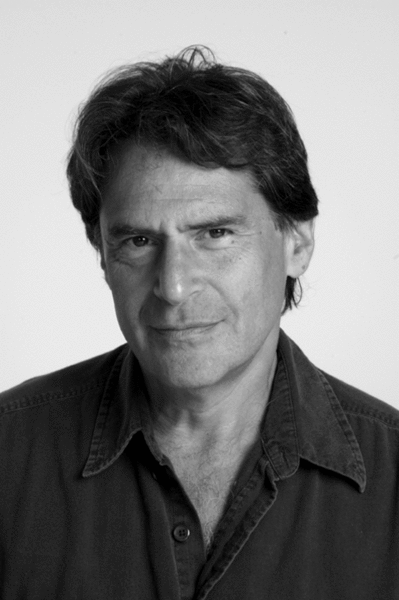It’s a bizarre topic to address seriously. It’s done facetiously all the time. Just watch any Republican presidential debate as each candidate rushes to out-pander the others with piety. Or a Democratic debate, for that matter. John Edwards has had “a personal faith journey.” He drifted, but his “faith came roaring back.” Hillary says, “At those moments when you are tested”—you know, when Bill did that thing with Monica—“it is absolutely essential that you be grounded in your faith.” Joe Biden speaks of possessing a “deep and abiding faith.”
(For full coverage of the faith status of the candidates, go to Beliefnet.com’s God-O-Meter, presented in cooperation with Time magazine, which promises a “scientific measure of God-talk”—this month’s top oxymoron—“in elections.”)
You would never guess that Article VI, Section 3, of the US Constitution states, “No religious test shall ever be required as a qualification to any office or public trust under the United States.” Whatever the rule is in law, we have de facto religious tests for public office, and they are goddamned stringent ones.
A very political entity is our God. And their gods too, all of them.
There are three basic positions when it comes to God: belief (the “missionary” position), atheist (also called “downward-facing dog”), and agnostic (Hamlet’s pose). Each necessarily implies a different set of questions.
If we presume God exists, then we must ask why He has not revealed Himself in a manner that is sufficiently clear that everyone can agree on His existence, His nature, and His relationship to us. Conversely, why are there so many different holy books, and why does even the Bible itself change over time? Speaking as a writer, I would think that one of the joys of being God was that I could get it right the first time and never have to do a rewrite.
If God doesn’t exist, then we must ask: Why do so many people believe? Indeed, why do a fair portion of them believe so fiercely that they are willing to kill and die over those beliefs, even though, to a nonbeliever, the anonymous quip “A religious war is like children having a fight over who has the better imaginary friend” rings all too true.
But there’s a more interesting question. If God doesn’t exist, then belief is delusional. Delusion is, by definition—and in virtually any other context—dysfunctional. Yet there is no evidence that atheists, so free of this particular disability, are happier, healthier, and wealthier than believers. According to most surveys, they don’t even have more sex. There have been officially atheist states—the Communist countries—and they have not outperformed “believing” societies. Though to complicate the issue, theocratic states do even less well.
The agnostic stance—we can’t know, therefore everyone should be free to believe what they want, and no belief may be imposed—is the official position of liberal Western democracies. It’s enshrined in the American Constitution, the UN Charter, the constitutions of the European Union, and of countless countries around the world. It was a very pragmatic solution from a European culture that had endured endless centuries of religious wars.
And it seemed to be working. Religious wars declined with the Enlightenment in the 17th century and people had to find other reasons to kill one another—empires, ideology, nationalism, and race. But suddenly, over the
last two decades, that approach has begun to fail, and here we are, holy wars everywhere you look. We need to come to some real understanding of what faith is if we ever hope to defuse it.
There are three doors before us.
One says “God.” We know what’s there: this Bible, that Koran, the Book of Mormon, the Upanishads, and a host of others. Each has its own contradictions, paradoxes, and puzzles that no one can explain except Himself. He hasn’t, He doesn’t, and all signs indicate that He won’t anytime in the near future. So it’s a dead end.
The middle one, agnosticism, opens on the land of muddle. Believing in something that exists is so fundamentally different from believing in something that doesn’t exist that, if you don’t take a stand, any attempt at understanding ends in incoherence.
The third has a mirror on it. It says forget about God, assume there is none, look at yourself. See how your mind is made. Figure out why you—your family and friends—could believe, fervently, in something that does not exist. If you are, in fact, a believer, you may be repelled by the very notion. But questions about ourselves are questions we can actually ask with the expectation that we can find answers.
It is the only door that opens on a land where we have the possibility of moving forward to new answers that are not part of the dead end we’re already in.
Before we go through the looking glass, we should acknowledge that oldfashioned, hard atheism—even when newly expressed by Richard Dawkins in The God Delusion and Christopher Hitchens in God Is Not Great: How
Religion Poisons Everything—is a failure. Aside from the fact that it doesn’t convince believers, it doesn’t answer the question of how religion—having a delusion—is functional. There have been enough atheist individuals and enough atheist societies that atheism has had the opportunity to demonstrate its functional superiority and outperform religion, and it has not done so. That question must be answered.
It can be. And it will be.
But for now, put the president getting his instructions from God, the crusading Christians, the murdering Muslims, the conflict between Islam and Israel, the violence between Shia and Sunni, the wars among Hindus
and Sikhs and Buddhists and Muslims out of your mind, and enjoy Christ’s mass—those Holy Days—and we’ll return to picking them apart to start off the New Year.














